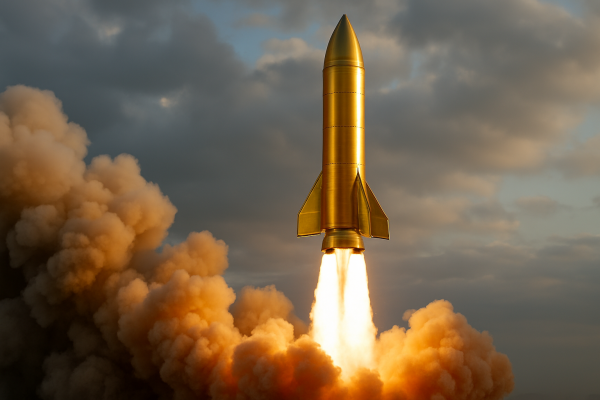April 28th, 2025 | 07:10 CEST
BYD doubles profits, European Lithium unlocks Greenland's treasures – can Volkswagen still keep up?
The global automotive industry is in turmoil. While the US is trying to seal off the market with drastic tariffs, Europe is seeking to reduce its dependence on raw materials. Lithium – the "white gold" of e-mobility – is becoming the key to technological sovereignty. That is why 47 projects in 13 member states are being funded. But can European manufacturers break their dependence on China while trade conflicts tear supply chains apart? And who stands to gain when protectionism meets innovation? BYD aims to expand westward. European Lithium seeks to mine the raw material in Austria. Volkswagen is struggling with US tariffs and trying to maintain its market share in China. The Financial Times recently reported that Donald Trump wants to accommodate automakers on tariffs.
time to read: 4 minutes
|
Author:
Armin Schulz
ISIN:
BYD CO. LTD H YC 1 | CNE100000296 , EUROPEAN LITHIUM LTD | AU000000EUR7 , VOLKSWAGEN AG VZO O.N. | DE0007664039
Table of contents:

"[...] China's dominance is one of the reasons why we are so heavily involved in the tungsten market. Here, around 85% of production is in Chinese hands. [...]" Dr. Thomas Gutschlag, CEO, Deutsche Rohstoff AG
Author
Armin Schulz
Born in Mönchengladbach, he studied business administration in the Netherlands. In the course of his studies he came into contact with the stock exchange for the first time. He has more than 25 years of experience in stock market business.
Tag cloud
Shares cloud
BYD – Rise through innovation and market strategy
BYD is consolidating its leading position in the Chinese electric vehicle market through a unique combination of vertical integration and a broad product range. The bundling of battery production and vehicle manufacturing enables cost efficiency, while pricing strategies ranging from inexpensive models to luxury brands such as Denza serve different customer groups. With revenue growth of 29% in 2024 and rising margins, BYD is demonstrating how economies of scale and product diversification are driving profitability – especially in an environment where many competitors are struggling to remain profitable.
BYD highlighted its competitive strength in the first quarter with impressive figures. Net profit doubled to USD 1.26 billion, while revenue rose 36% to USD 23.4 billion. A total of 1,000,804 vehicles were sold, representing an increase of around 60%. International demand rose particularly strongly, with growth of over 110%. In March alone, the Company exported 72,723 units, representing a growth rate of a whopping +89.2%. The improved margin of 17.0% reflects the economies of scale of vertically integrated production and the success of high-priced models.
While BYD dominates in China, its internationalization strategy is focused on Europe, Latin America, and Southeast Asia. Local production facilities in Hungary and Brazil, as well as partnerships with European dealers, are intended to circumvent trade barriers. However, even the Chinese market leader faces challenges. Tensions between the US and China are making expansion into the US difficult. At the same time, the Company is trying to build a premium brand image. The race for solid-state batteries and autonomous driving could reshape the industry. BYD's agility will be the decisive test here. The share is currently available for EUR 45.60.
European Lithium – Lithium, rare earths, and strategic opportunities
In Wolfsberg, Austria, European Lithium's subsidiary Critical Metals Corp. is developing one of Europe's most promising lithium projects. A strategic partner has already been secured. BMW secured preemptive rights to the lithium, which is to be mined from 2026 and processed into battery-grade material in Saudi Arabia from 2027, by making an advance payment. The cooperation leverages Saudi Arabia's energy advantages – processing costs there are around 80% below European levels. With a planned annual capacity of 20,000 tons of lithium hydroxide, the project is positioning itself as a regional building block for the e-mobility transition.
The Tanbreez project in South Greenland could reduce the West's dependence on China. The deposit contains 4.7 billion tons of mineralized rock with an unusually high proportion of rare heavy metals such as dysprosium and terbium, which are essential for magnets in electric vehicles and wind turbines. A preliminary economic assessment (PEA) confirms the project's economic viability. With a net present value (NPV) of USD 2.4 - USD 3 billion before taxes at a discount rate of 10% and 8% and a payback period of only 3 years, the project has excellent key figures. The 30-year mining license adds to its appeal. European Lithium currently holds a 7.5% direct stake in the project, while its subsidiary Critical Metals holds 42% and can increase its stake to 92.5%.
In addition to these projects, European Lithium holds stakes in other assets. Up to 105 million tons of lithium oxide lie dormant in Ireland, and the Ukrainian projects offer long-term potential – provided geopolitical tensions subside. The 70.4% stake in NASDAQ-listed Critical Metals alone exceeds the Company's own market capitalization, which stands at around AUD 80 million at a current share price of AUD 0.055. Analysts see a discrepancy here. The portfolio, coupled with Western supply chain ambitions, justifies a valuation many times higher than the current level. First Berlin Equity Research's price target is EUR 0.14. Especially now, with the US competing for rare earths, the stock should be kept on the watch list.
Volkswagen – Caught between global transformation
The European car market is showing initial signs of recovery; however, Volkswagen faces complex challenges. The Company is struggling with declining market shares, particularly in China, the world's largest sales market. Local manufacturers such as BYD and Xiaomi are setting new standards with low-cost electric vehicles and rapid model cycles. In response, Volkswagen is intensifying its cooperation with partners such as XPeng and presenting China-specific models such as the ID.AURA and the 800-volt SUV ID.EVO. Analysts view the localization strategy positively but emphasize the need to catch up in the areas of software and digital services.
In view of impending tariffs and production disruptions, experts are considering a complete takeover of US electric pioneer Rivian by Volkswagen. The alliance could leverage synergies! Rivian's software excellence and underutilized US factories combined with VW's economies of scale and battery expertise. With EUR 36.1 billion in liquidity, the Company has sufficient leeway to finance the integration. In addition, an acquisition would minimize existing joint venture risks and strengthen its position in the race for autonomous technologies – a decisive factor in the battle against Tesla and BYD.
Together with Uber, Volkswagen plans to launch autonomous robot taxis in 2026. The basis for this is the electric ID. Buzz, equipped with software from its subsidiary MOIA. The alliance could give VW access to Uber's fleet network and expand the database for AI training. But the competition is fierce. Waymo already dominates in several US cities, and Tesla is pushing ahead with its Cybercab. For Volkswagen, it is not just about technological leadership but also about increasing profitability through new business models beyond vehicle sales – a key to long-term margin stabilization. The stock has recently had some tailwind and is currently trading at EUR 97.76.
The global automotive industry is balancing between protectionism and pressure to innovate. BYD is driving e-mobility forward with vertical integration and international expansion, but its premium ambitions and US hurdles remain risky. European Lithium is strengthening Europe's lithium sovereignty with projects like Wolfsberg and its partnership with BMW. However, the rare earths of the Tanbreez project are the focus of attention due to the current circumstances. Volkswagen is struggling with declining market share in China and US tariffs. The latter could be circumvented by a Rivian takeover. The Company aims to tap into a new line of business with autonomous robot taxis in collaboration with Uber.
Conflict of interest
Pursuant to §85 of the German Securities Trading Act (WpHG), we point out that Apaton Finance GmbH as well as partners, authors or employees of Apaton Finance GmbH (hereinafter referred to as "Relevant Persons") may hold shares or other financial instruments of the aforementioned companies in the future or may bet on rising or falling prices and thus a conflict of interest may arise in the future. The Relevant Persons reserve the right to buy or sell shares or other financial instruments of the Company at any time (hereinafter each a "Transaction"). Transactions may, under certain circumstances, influence the respective price of the shares or other financial instruments of the Company.
In addition, Apaton Finance GmbH is active in the context of the preparation and publication of the reporting in paid contractual relationships.
For this reason, there is a concrete conflict of interest.
The above information on existing conflicts of interest applies to all types and forms of publication used by Apaton Finance GmbH for publications on companies.
Risk notice
Apaton Finance GmbH offers editors, agencies and companies the opportunity to publish commentaries, interviews, summaries, news and the like on news.financial. These contents are exclusively for the information of the readers and do not represent any call to action or recommendations, neither explicitly nor implicitly they are to be understood as an assurance of possible price developments. The contents do not replace individual expert investment advice and do not constitute an offer to sell the discussed share(s) or other financial instruments, nor an invitation to buy or sell such.
The content is expressly not a financial analysis, but a journalistic or advertising text. Readers or users who make investment decisions or carry out transactions on the basis of the information provided here do so entirely at their own risk. No contractual relationship is established between Apaton Finance GmbH and its readers or the users of its offers, as our information only refers to the company and not to the investment decision of the reader or user.
The acquisition of financial instruments involves high risks, which can lead to the total loss of the invested capital. The information published by Apaton Finance GmbH and its authors is based on careful research. Nevertheless, no liability is assumed for financial losses or a content-related guarantee for the topicality, correctness, appropriateness and completeness of the content provided here. Please also note our Terms of use.




